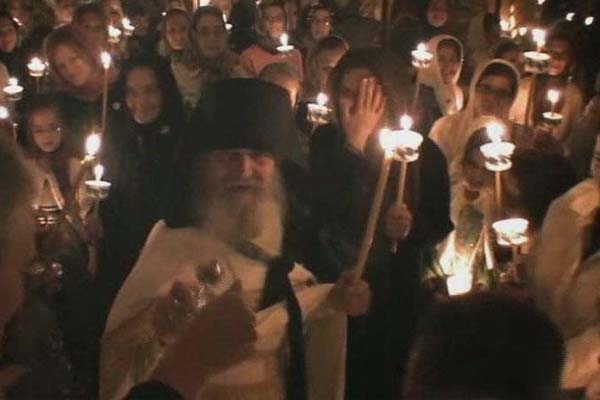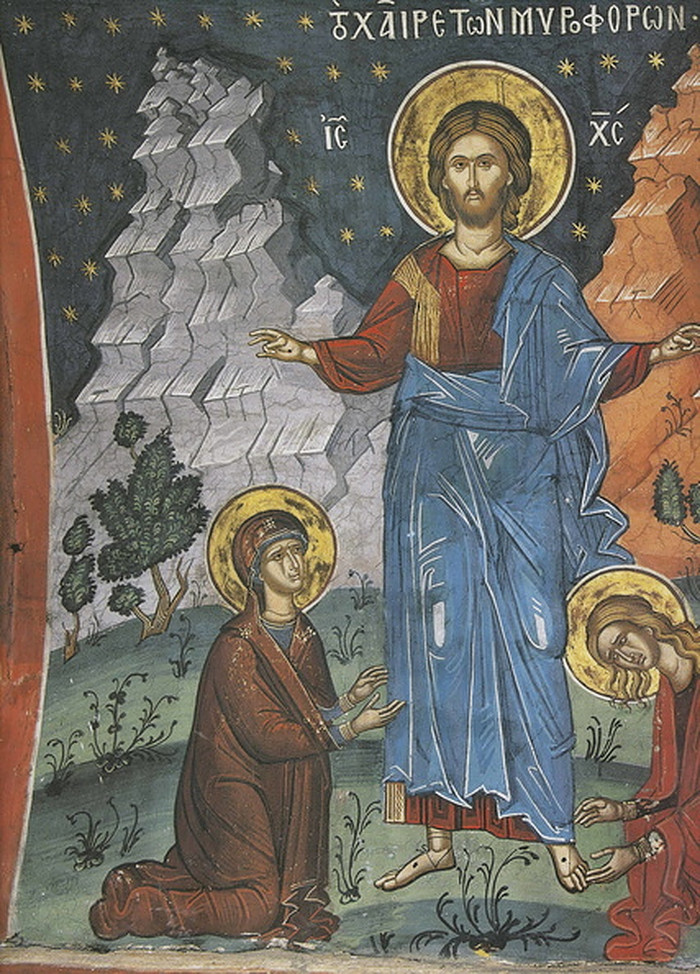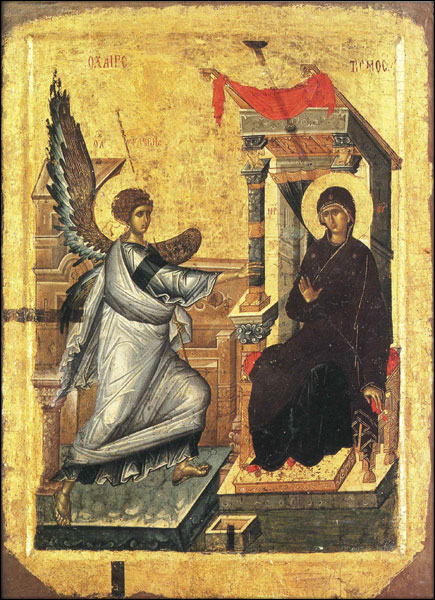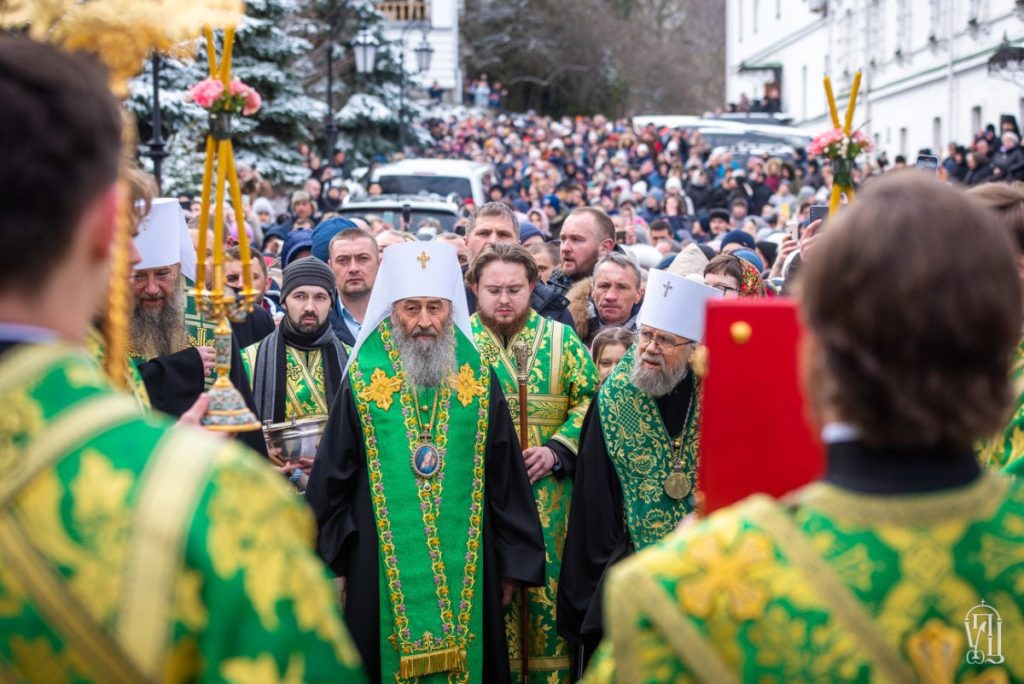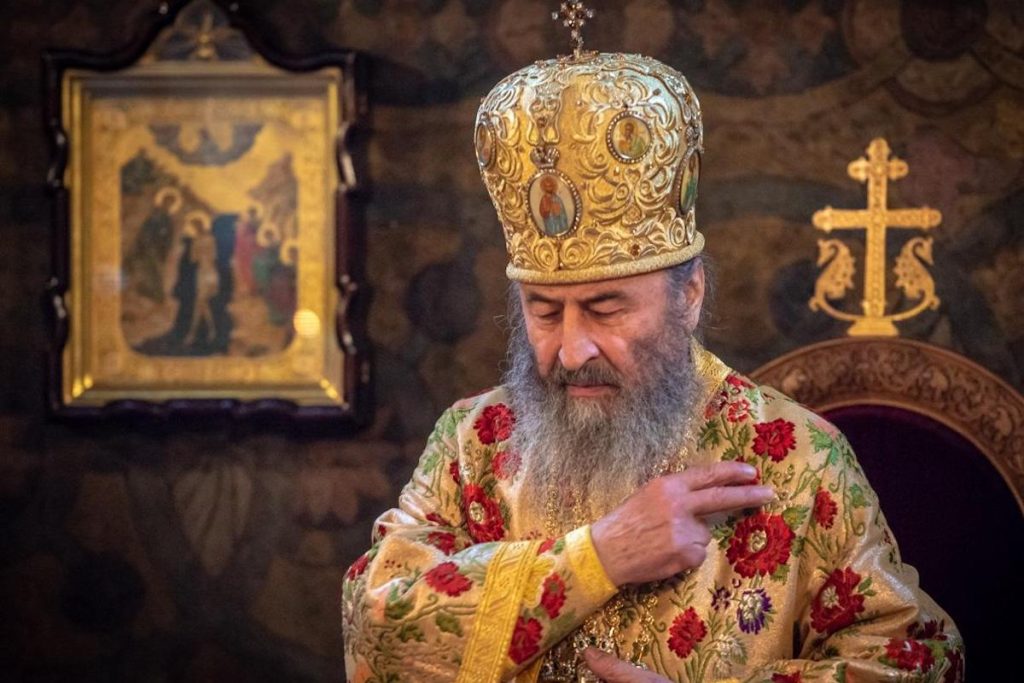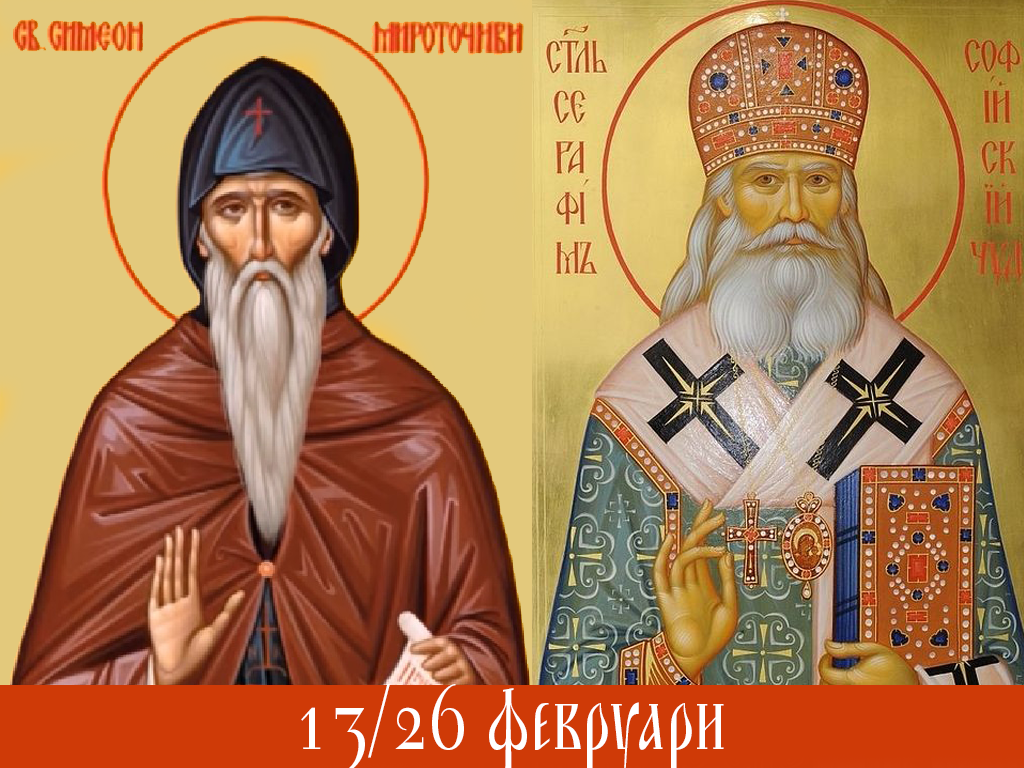
Humble by Nature – by Elder Ephraim of Arizona
Our Christ has allowed us once again this year to celebrate the great and light-bearing day of His Resurrection: “Pascha, the Lord’s Pascha.”
Pascha is translated as “passing.” The human race received the grace and blessing from God to ascend from the earth to Heaven; to pass from transient death into eternal life.
Our Christ was infinitely merciful to us. He felt sorry for us and came down to our earth in order to raise us to Heaven.
Every year we celebrate Holy Pascha. Every year we all eagerly anticipate it, so we can once again feel the special joy and light of the Divine Resurrection within our souls; in order to taste a “small sample” of the endless jubilation of the eternal Pascha; to get a glimpse of the light that illumines the other world; to experience a tiny bit of the eternal blessedness that is felt in Heaven above by the souls who already have the privilege of being saved and who now celebrate the never-ending, eternal Pascha.
Continue readingQuote from Elder Ephraim of Arizona on Holy Pascha
Christ is risen! Truly He is risen!
March 24th, 1980. Holy Pascha.
Today is the Resurrection of Christ.
“Come, receive the light, from the never-setting light…”
O, never-setting, perfect light that never sets, surpassingly bright and surpassingly white, O how you magnetize my nous, my soul, my heart! I desire you endlessly, with love and eros unending. When will I be made worthy of the gift of the compassion of my Most-Holy God the Father, to partake of You unto the ages of ages!
My unworthiness troubles me, that I am not worthy of such a place among the saved, but I am worthy of hell and of eternal punishment.
The Resurrection, the eternal Pascha, attracts me terribly. It draws me above the state of things. Above heaven. Above to the sure desire, which I greatly desire to find. But, when will this occur?
Continue readingEach of us is potentially a Judas
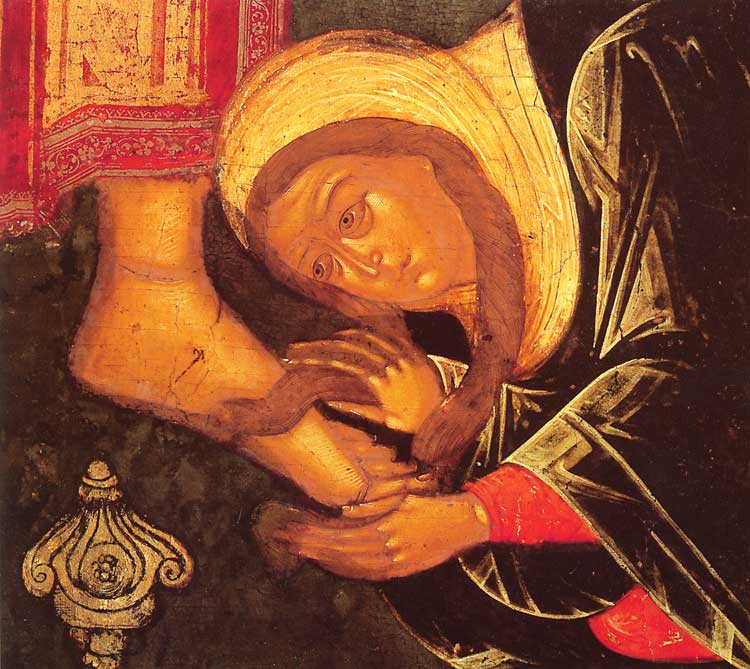
Now when Jesus was in Bethany, in the house of Simon the leper, there came unto Him a woman having an alabaster box of very precious ointment, and poured it on His head, as he sat at meat. But when His disciples saw it, they had indignation, saying, “To what purpose is this waste? For this ointment might have been sold for much, and given to the poor.” When Jesus understood it, He said unto them, “Why trouble ye the woman? for she hath wrought a good work upon Me. For ye have the poor always with you; but Me ye have not always. For in that she hath poured this ointment on My body, she did it for My burial. Verily I say unto you, Wheresoever this gospel shall be preached in the whole world, there shall be also this, that this woman hath done, be told for a memorial of her.” Then one of the twelve, called Judas Iscariot went unto the chief priests, and said unto them, “What will ye give me, and I will deliver Him unto you.” And they covenanted with him for thirty pieces of silver. And from that time he sought opportunity to betray Him. (Matthew 26:6-16)
In this passage of Scripture, we read how, as our Lord prepared for His Passion, a woman came and anointed Him with very precious ointment; and it is very touching how our Lord accepted such love from simple people. But at the same time Judas—one of the twelve who were with Him—looked at this act, and something in his heart changed. This was apparently the “last straw,” because Judas was the one in charge of the money and he thought that this was a waste of money. We can even see the logical processes going on in his mind. We can hear him think about Christ: “I thought this man was somebody important. He wastes money, he doesn’t do things right, he thinks he’s so important…” and all kinds of similar little ideas which the devil puts in his mind. And with his passion (his main passion was love of money), he was caught by the devil and made to betray Christ. He did not want to betray Him; he simply wanted money. He did not watch over himself and crucify his passions.
Continue readingThe Annunciation
When the All-Holy Virgin completed the fourteenth year after her birth and was entering her fifteenth year, after having spent eleven years of living and serving in the Temple of Jerusalem, the priests informed her that, according to the Law, she could not remain in the Temple but was required to be betrothed and enter into marriage. What a great surprise to the priests was the answer of the All-Holy Virgin that she had dedicated her life to God and that she desired to remain a Virgin until death, not wanting to enter into marriage with anyone! Then, according to Divine Providence, Zacharias, the high priest and father of the Forerunner, under the inspiration of God, and in agreement with the other priests, gathered twelve unwed men from the Tribe of David to betroth the Virgin Mary to one of them to preserve her virginity and to care for her. She was betrothed to Joseph of Nazareth who was her kinsman. In the house of Joseph, the All-Holy Virgin continued to live as she did in the Temple of Solomon, occupying her time in the reading of Sacred Scripture, in prayer, in Godly-thoughts, in fasting and in handiwork.
Continue readingGerontissa Makrina

1921-1995
Maria (the future Abbess Makrina) was born in 1921 and grew up in Volos. When she was only ten, both of her parents died, and she began working to support herself and her younger brother. These two orphans managed to survive like this until she was twenty. But when the German Occupation began and famine struck Greece in 1941, they nearly died of starvation, and her brother left Volos. She continued working in Volos wherever she could for her daily bread. Despite her own poverty, she shared whatever food she had with others. Not only was she a hard worker and generous, but she was especially a person of prayer and frequently perceived God’s help tangibly.
In those days, she became acquainted with the mother of Geronda Ephraim, Victoria Moraitis. Those two holy women would pray together all night long on their knees with many tears and prostrations. Because of Maria’s virtues, other pious young women gathered around her during the years of the German Occupation.
Continue readingMonastic Tonsures at the Kiev Caves Lavra – PHOTO GALLERY
On the evening of Wednesday, March 15, two men were tonsured into monasticism in the caves at the famous Kiev Caves Lavra. The rite of tonsure was celebrated by the abbot of the monastery, His Eminence Metropolitan Pavel of Vyshgorod and Chernobyl.
Of course, the Great Fast is the most fitting time to give one’s life to Christ in the angelic habit with the requisite vows of asceticism.
It’s also fitting to remember this event today, on the Sunday of the Cross, as monasticism is nothing less than co-crucifixion with the Lord. As St. John of Climacus teaches, angels are a light for monks, and monks are a light for men, because it’s the monastics who most fully live out the Gospel of picking up one’s cross and dying to oneself. The spirit of monasticism is a continuation of the spirit of martyrdom, of the pursuit of the perfection of Christ.
Continue readingThousands of orthodox Ukrainians fill Kiev Caves Lavra as state continues to persecute the monastery
The Orthodox faithful of Kiev came out in force on Sunday to worship and show their love and support for holy Orthodoxy.
Thousands of people filled the Holy Dormition-Kiev Caves Lavra on the Sunday of St. Gregory Palamas, when all the saints of the Lavra are also celebrated, following their beloved hierarch His Beatitude Metropolitan Onuphry of Kiev and All Ukraine in prayer.
The blessed event occurred just two days after it became known that the state intends to completely expel holy Orthodoxy from the Lavra by the end of the month. The Church was already kicked out of the cathedrals of the Upper Lavra late last year, and has been worshiping in the churches of the Lower Lavra since then. Both sections of the monastery have been under state control since Soviet times.
The celebration began with the All-Night Vigil on Saturday night in the Church of St. Agapit in the Lower Lavra. The next morning, the saintly Met. Onuphry, together with 29 other hierarchs, led the Divine Liturgy in the Holy Cross Church.
It was initially planned to hold the service outside on the square in front of the church to better accommodate the thousands of pilgrims who were expected, but due to inclement weather, the service was held inside. Nevertheless, the rightly believing Kievan faithful filled the territory of the Lavra, braving the elements.
The video below shows thousands of faithful chanting the Nicene Creed together on the square outside the church:
After the reading of the Holy Gospel, His Beatitude addressed the faithful with an archpastoral sermon in which he addressed the state’s ill will towards the Church and the brotherhood of the Lavra:
Today, dear brothers and sisters, clouds have gathered over this holy monastery…
Continue readingIf there is no commandment, man cannot develop spiritually and be perfected
—Your Beatitude, we often hear the same complaint from the unchurched about Great Lent: Why such extremes—to eat only vegetable products for a month and a half before Pascha, often even without oil, and on certain days eating nothing? The opponents of the Church see something dictatorial and cruel even in the very concept of a “ban”…
—We mustn’t look at Lent as a ban. Fasting is one of the voluntary components of spiritual practice, and keeping the fast is an expression of our obedience to the Lord and His holy Church. Obedience was already introduced by the Lord to our forefathers Adam and Eve. There were many trees in the Garden of Eden that bore beautiful and desirable fruit, and Adam could eat from any of them, except for one. The Lord forbade it not because He didn’t want to share this fruit with Adam, but to give him a commandment of obedience, through which he could perfect his love for the Creator. If there is no commandment, man cannot develop spiritually and be perfected.
When children obey their parents, they thereby express their love for them. They are sorry to disappoint their parents, and when they are disobedient and do bad things, their conscience immediately begins to reproach them, and there arises a psychological barrier in communicating with their parents. And children often run to their parents with tears of repentance to remove the burden from their youthful soul. We, adults, must obey the holy Church, fulfilling its precepts, submitting to its typikon and its rules. And thanks to this obedience, our love for God grows through the grace received from Him. When we act contrary to the will of God, we depart from Him, and it’s difficult for us to be with Him as it was difficult for sinful Adam in Paradise.
Continue readingWhat does it mean to walk in truth
Venerable Simeon, the Myrrhgusher and Prince of Serbia and Archbishop Seraphim (Sobolev)
What does it mean to walk in truth (III John 1:4)? It means accepting truth in your heart, abiding in such thoughts and feelings as the truth requires. Thus, it is the truth that God is everywhere and sees everything.
He who accepts this truth with his heart and begins to keep himself both inwardly and outwardly as if God Himself were before him and were seeing everything within him, is walking in this truth. It is the truth that God contains all, and that without Him we cannot do anything successfully.
Continue reading
